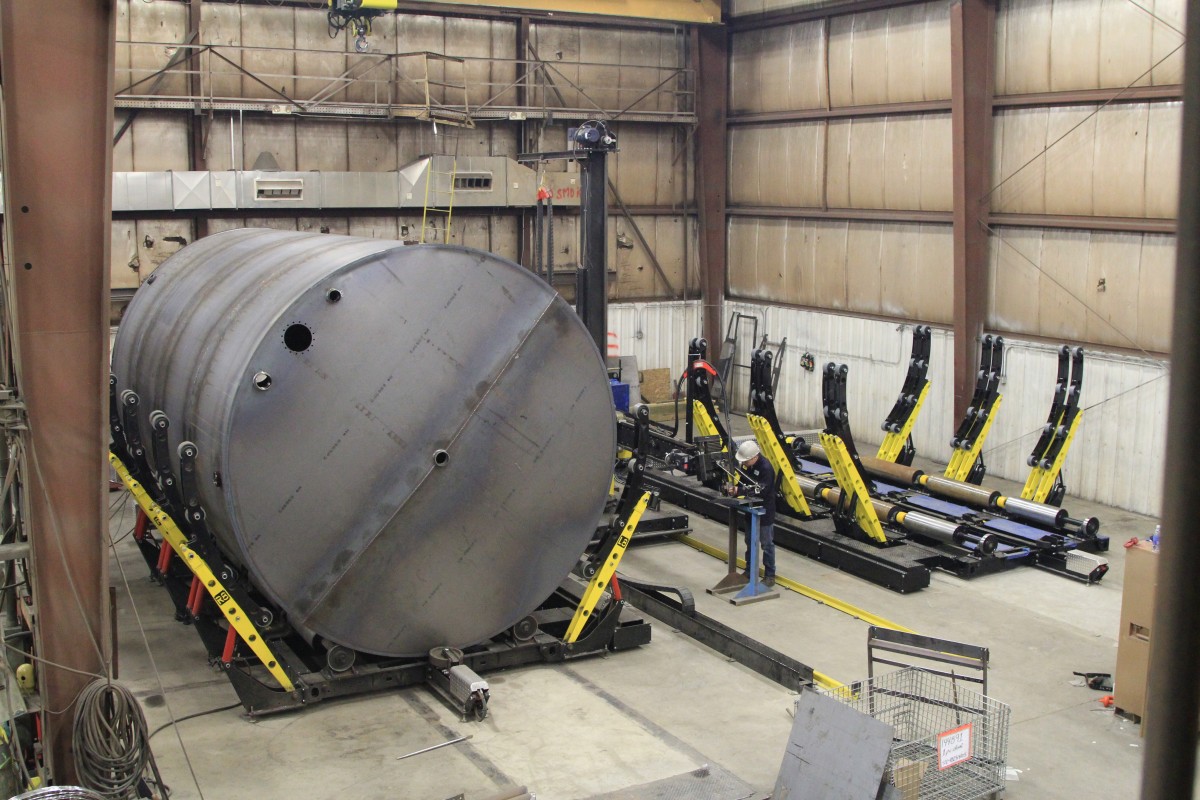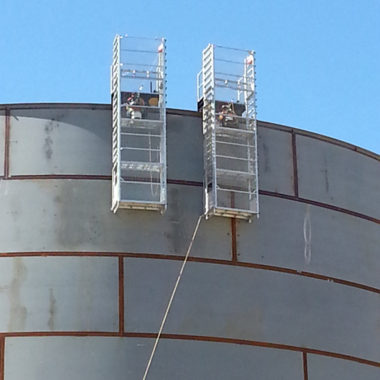Professional Tank Welding Evaluation Solutions for Quality Control and Compliance
In the world of commercial container construction, the integrity of welding plays a vital role in guaranteeing long life, dependability, and safety. Specialist container welding evaluation services stand as the foundation of high quality control and compliance measures adopted by sectors. From thorough assessments to innovative methods, the realm of tank welding inspection supplies an advanced landscape of practices targeted at maintaining standards and mitigating threats. Nevertheless, the importance of these solutions gets to far past mere method adherence.
Significance of Storage Tank Welding Inspection
Making sure the top quality of tank welding via meticulous assessment is essential in preserving architectural integrity and stopping possible hazards in industrial setups. Container welding plays a vital function in numerous sectors, including oil and manufacturing, chemical, and gas handling. The architectural integrity of storage tanks is extremely important to stop leaks, spills, and other harmful cases that can result in environmental damage, financial losses, and even threaten lives.
With extensive examination procedures, welding defects such as cracks, incomplete fusion, and porosity can be identified and corrected quickly. Assessments likewise assist make certain conformity with sector criteria and guidelines, supplying a degree of guarantee relating to the high quality and safety of the bonded containers.
Normal examinations not just improve the general quality of tank welding but additionally add to the long life and dependability of industrial equipment. By spotting and addressing concerns beforehand, firms can prevent costly repairs, downtime, and possible mishaps, eventually safeguarding their procedures and reputation.
Advanced Inspection Strategies
One sophisticated strategy that has changed tank welding examination is the use of automated ultrasonic screening (AUT) This approach eliminates human mistake and ensures detailed insurance coverage of welds, improving the general top quality of evaluations.
In addition, phased array ultrasonic testing (PAUT) is an additional advanced evaluation strategy gaining popularity in storage tank welding examinations. Tank Welding Inspection Service. PAUT enables accurate control over the ultrasonic light beam angle and centerpiece, enabling inspectors to find and identify defects with high resolution. This technique is especially reliable in evaluating complex geometries and can offer comprehensive imaging of weld flaws for detailed analysis
Along with AUT and PAUT, advanced radiographic testing methods, such as digital radiography, are being increasingly utilized in storage tank welding inspections. These methods provide enhanced image quality, decreased evaluation times, and enhanced security compared to conventional radiographic methods. By incorporating these advanced inspection strategies, markets can make sure better control and compliance with regulatory standards in container welding procedures.
Trained Evaluation Professionals
Proficiency in examination strategies is critical for ensuring the precision and dependability of tank welding examinations in industrial settings. Educated inspection specialists play a vital role in promoting quality assurance standards and making certain compliance with governing demands. These professionals go through rigorous training to establish proficiency in numerous evaluation approaches, including aesthetic screening, ultrasonic testing, radiographic screening, and magnetic bit screening.
Licensed examination experts are fluent in interpreting standards and codes certain to tank welding, such as API 653 and API 650. They possess the expertise and skills to determine welding issues, assess weld high quality, and make educated decisions concerning the reputation of bonded joints. Additionally, these experts find more info are educated to run advanced evaluation tools and utilize specialized tools to carry out complete examinations of tank welds.
Economical Quality Assurance Solutions

In the middle of the difficulties of maintaining high standards in container welding examinations, the pursuit for economical high quality control services emerges as a pivotal emphasis for industrial operations. One cost-efficient remedy is the use of sophisticated inspection modern technologies such as automated welding examination systems.
Along with technological innovations, developing an extensive quality assurance strategy that includes normal assessments, documentation, and staff member training can substantially contribute to set you back savings in the long term. By buying training programs for welding inspectors and making certain adherence to market criteria, business can proactively identify problems, minimize rework, and prevent costly fixings.
Furthermore, contracting out specialized examination services when needed can be a cost-effective method for weblink companies that do not have the experience or resources internal. Collaborating with credible evaluation companies can give accessibility to competent specialists and advanced devices without the demand for substantial capital expense. Ultimately, focusing on cost-efficient quality control options is critical for achieving operational effectiveness, conference regulatory requirements, and providing high-grade welded tanks.
Ensuring Regulatory Compliance


Regulatory compliance in tank welding assessments is a basic facet of ensuring industry standards and safety requirements are met. Sticking to regulatory guidelines set forth by organizations such as the American Oil Institute (API) and Occupational Safety And Security and Wellness Management (OSHA) is crucial to guaranteeing the honesty and integrity of bonded containers. These guidelines detail certain requirements informative post for welding treatments, product specs, evaluation methods, and quality assurance measures that have to be complied with to preserve operational excellence and protect against possible dangers.
To make sure regulatory compliance in container welding assessments, qualified welding inspectors have to have an extensive understanding of the applicable codes and criteria. Routine audits and assessments should be performed to confirm that welding processes and treatments line up with regulatory needs. Furthermore, documents and record-keeping are necessary elements of conformity, supplying a transparent route of adherence to policies for bookkeeping functions.
Conclusion
To conclude, professional container welding evaluation remedies play a vital duty in ensuring the high quality control and compliance of storage tanks. By making use of sophisticated examination methods and experienced experts, firms can efficiently check the welding process, recognize potential problems, and keep regulatory compliance (Tank Welding Inspection Service). This aggressive approach not only aids in preventing expensive fixings and downtime but likewise ensures the security and integrity of the tanks
From thorough evaluations to sophisticated strategies, the realm of storage tank welding assessment supplies a sophisticated landscape of methods intended at promoting standards and mitigating risks.Additionally, phased variety ultrasonic screening (PAUT) is an additional advanced evaluation method getting appeal in container welding examinations.Effectiveness in inspection techniques is critical for guaranteeing the accuracy and dependability of storage tank welding assessments in industrial settings. One affordable option is the use of sophisticated assessment innovations such as automated welding assessment systems.In final thought, expert tank welding evaluation solutions play an essential role in ensuring the top quality control and conformity of storage tanks.